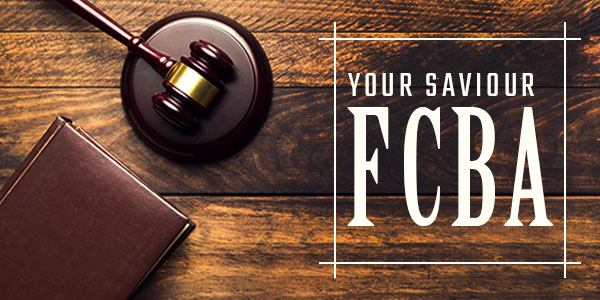What if you are charged for an item or a service by mistake? Or what if you have been overcharged for an item on your credit card?
Does this mean, you can’t get back your money? Is there any scope to dispute these kinds of incorrect charges?
Calm down! Yes, there is the Fair Credit Billing Act (FCBA), which can be your savior.
What is the FCBA?
The Fair Credit Billing Act (FCBA) has been designed in 1071 to protect consumers from credit card company’s unfair charges. This law protects subjects like “open-end” accounts and revolving charge accounts.
This law doesn’t apply to other loans like auto loans, mortgage, payday loans, and personal loans.
How does the FCBA ACT help to protect consumer rights?
The FCBA law allows credit cardholders to protect themselves from unfair and incorrect charges by the credit card companies.
Here are the things consumers get from the FCBA Act.
- If the credit card holder makes an overpayment, the credit card company should credit the card holder’s account.
- The credit card company should send the credit card bill at least 14 days before the minimum payment due date. This rule has been modified. According to the CARD Act of 2009, the credit card company needs to send the bill at least 21 days before payment is due.
- The consumers have the right to dispute the credit card charges if they believe there are errors in the bills and the credit card company is imposing unfair charges.
- The credit card company should resolve the dispute within 2 billing cycles (Not more than 90 days).
- If an account is in dispute under the FCBA Act, the consumers don’t have to pay the disputed amount.
- Once the consumer disputes the credit card charges, an investigation will start.
- During the investigation of a disputed case, the credit card company can’t take legal action against the debtor.
- The credit card company is not liable to threaten the debtor’s credit rating, report the debtor as delinquent, or restrict/close the debtor’s account during the investigation of a dispute.
How can consumers use the FCBA to protect their consumer rights?
It is true that FCBA provides protection to consumers. But, if the consumers do nothing after knowing that there are errors in the credit card bill, then the law can’t do anything for them.
The consumers have to use the FCBA Act properly to protect their consumer rights.
How can they do that?
Here you go:
1. The consumers need to dispute a charge within 60 days
If a consumer catches a billing error, then he/she has to act quickly. The consumer has to notify the dispute or wrong charges to the credit card company within 60 days. Otherwise, the consumer won’t be eligible to use FCBA rights.
2. The consumers need to notify the issuer about the unauthorized charge
The consumer has to notify about the fraudulent charges, or unauthorized charges to the issuer to get the FCBA protection.
3. The consumers need to mail the dispute letter
Once the consumer finds billing errors or other issues, he/she has to mail the complaint directly to the credit card company. Calling or other means of unauthorized notification is not enough. Send the letter through a certified mail.
4. Consumers need to include all the details with the dispute letter
With the complaint letter, the consumers need to mention their names and account numbers, the dollar amount they are disputing and the reason for disputing the error on their report.
Consumers can get the sample template of the disputing letter from the Federal Trade Commission’s sample dispute letter.
5. Consumers need to keep the update about the complaint
Only disputing is not enough. The consumer needs to keep the update regarding the complaint. As per the law, the card issuer has to acknowledge the dispute within 30 days. Remember, the investigation takes a few months to complete. In the meantime, the card issuer can’t report the disputed charge as a late payment to the credit bureaus. The issue is also not allowed to collect payment on the disputed portion of the bill or charge any interest.
6. Consumers can challenge the card issuer’s investigation
If the consumer is not satisfied with the result of the investigation done by the card issuer, he/she can challenge the investigation. In this case, the consumer has to challenge the investigation within 10 days of receiving the written explanation from the card issuer.
7. Consumers can temporarily withhold payment
If a consumer is not happy with a credit card purchase, then under the FCBA law, he/she can complain about the quality of the product. As per the law, the consumer can delay the payment of that specific charge on his/her credit card bill until the complaint is resolved. However, the consumer has to invoke this right. He/she has to inform the merchant first and send the dispute letter properly.
8. The consumers can hire a lawyer
If the consumers think that the card issuer has violated the FCBA Act, they can file a lawsuit against the credit card company as per the Consumer Financial Protection Bureau or the Federal Trade Commission directives.
In this process, they can hire a lawyer to know the Fair Credit Billing Act properly.
Lastly, it is very important to understand the law that has been designed to protect our rights when it comes to any consumer products. In this case, the FCBA law also provides protection if a person lost his or her credit card. Or, if the card gets stolen, the FCBA law comes as a lifesaver. However, we must understand the laws properly to get benefitted. So, read about all the laws including FCBA to protect your rights.









